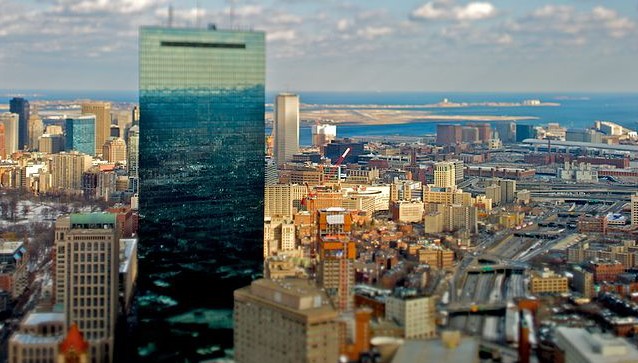This is a politics blog, I am a student masquerading as a writer, and there is still blood on the sidewalk. These things should disqualify me from writing about the Boston Marathon attack. But I’m just emerging from the numbness of the events, and need to attempt to make sense of them. Tragedy is so often far away, but not when the street names are familiar and you’ve walked by storefronts that are now shattered.
Most sporting events are things you attend. There are gates, tickets, and bag checks. The Boston Marathon feels different. Yes, there are barricades and police, a finish line and winners. But the marathon is more like a citywide block party, a chance to stretch your legs after a long winter. It’s impossible to see the whole thing, so people carve out their spot along the route in whatever neighborhood they live, or at whatever mile marker they prefer. Maybe you’ve come to see the elite runners, maybe you’re there to see your college roommate who’s running her first race. Maybe you’re just a college kid who wants to drink before noon. If you’re a Bostonian, even temporarily, it’s your little quirky holiday, when Boston feels both like the center of the universe and the biggest small town there ever was. I worry this will all be lost, maybe temporarily, maybe permanently.
While I was following events in Boston, I noticed some tweets about Iraq: 50 people were killed and 300 wounded in a series of attacks today. Do Iraqis respond like we do to these events, with confusion, sadness, and anger? I don’t know. I must admit that when I compare the reaction, from myself and others, to tragedies inside and outside the US, I feel guilty. I suppose it’s natural to care more about people you feel kinship with, even if that kinship is based merely on a shared nationality. The disorientation we feel after events like this is a reminder that America is, when compared with other nations past and present, a remarkably peaceful place. Perspective is not always comforting, but it is important.
Many outside the US, and a few inside, argue that America’s peace is an ill-gotten product of the violence it inflicts on others. I do believe that America throws around its military too freely, with too much regard for its own interests and not enough regard for the lives of others. But this kind of moral relativism is odious. Targeting civilians is always a heinous crime, with no justification.
I have two, conflicting reactions to these tragedies: the desire to embed the sadness and victims in my memory, and the urge to move on as quickly as possible. How long do you grieve for people you don’t know? How much relief are you allowed to feel that all your loved ones are safe? More than ten years later, the wound from September 11 seemed to be healing, or at least our domestic troubles had made the memory dim. This event has refreshed that pain.
But I also believe that after the Twin Towers fell, Americans were too quick to embrace the notion that everything had changed. We discounted our freedoms in an attempt to find security. I hope we won’t make the same mistakes again. Getting back to normal life takes courage, and, if we’re being honest, a willful repression of feelings and fears. I hope next year’s marathon won’t be filled with checkpoints and searches. Although I can’t really blame anyone if it was.
There is one thing I know: Dozens of people, ordinary people, some in uniform and some not, rushed toward the danger to help. These people outnumber the people who committed this act. And this gives me hope.
